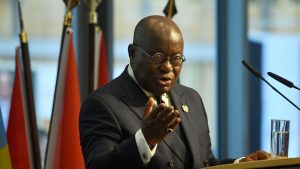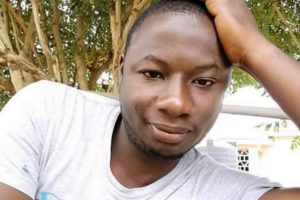The son of Dutch investigative reporter Peter R de Vries has said the family’s “worst nightmare came true” when his father was shot and seriously wounded.
Royce de Vries added that the family were taking “enormous support” from the messages of solidarity pouring in.
Mr de Vries, 64, was shot on Tuesday after leaving a TV studio in Amsterdam. Three men were arrested, but police say one is no longer a suspect.
Officials say the journalist is fighting for his life in hospital.
The veteran journalist is well known for his coverage of the criminal underworld, exposing gangsters and drug lords. He has helped police solve a number of high-profile cases, and also investigated cold cases, especially concerning children and teenagers.
Mr de Vries has faced danger because of his work in the past. He has needed police protection after receiving threats in connection with his coverage of criminal cases, and in 2019 police told him he was on the hit list of the Netherlands’ most wanted criminal.
Prime Minister Mark Rutte said the shooting was “shocking and incomprehensible”, adding that it was an attack on a “courageous journalist” and on the freedom of the press.
King Willem-Alexander and Queen Máxima said they were “deeply shocked” and that “journalists must be free to carry out their important work without threats.”
Tributes including flowers, candles and messages have been placed at the scene of the shooting. There have also been strong reactions from outside the Netherlands. The President of the European Council, Charles Michel, called the attack a crime against journalism.
“We will relentlessly continue to defend the freedom of the press,” he wrote.
What is known about the shooting?
The attack happened just after 19:30 (17:30 GMT) on Tuesday, as the journalist was walking away after a chat show on the Lange Leidsedwarsstraat in central Amsterdam.
Five shots were fired at close range and Mr de Vries was hit in the head, local media reported.
Dutch police later said they would continue to hold two men in connection with the shooting. They said a 35-year-old Polish man and a 21-year-old Dutch man would face a magistrate on Friday.
A third suspect, who is 18 years old, will be released.
The attack has put the spotlight once again on the safety of journalists.
The International Federation of Journalists called the attack “another tragic blow to press freedom in Europe.”
European Parliament President David-Maria Sassoli said “attacks against journalists are attacks against all of us.”
Although journalists work in a relatively safe environment in the EU, there have been high-profile killings of investigative reporters in recent years which have shocked the continent.
Last year, a former soldier in Slovakia was jailed for 23 years for the killing of journalist Jan Kuciak and his fiancée in 2018.
In Malta, two men were charged earlier this year with supplying the car bomb that killed investigative journalist Daphne Caruana Galizia in 2017.
Who is Peter R de Vries?
Peter R de Vries has covered numerous high-profile crimes, including the 1983 kidnapping of beer magnate Freddy Heineken.
In 2013 Heineken’s kidnapper, Willem Holleeder, was convicted of making threats against Mr de Vries.
One of the Netherlands’ most notorious gangsters, Holleeder, was given a life sentence in 2019 for his involvement in five murders.
A novel Mr de Vries wrote about the case was later adapted into the movie Kidnapping Freddy Heineken, starring Anthony Hopkins.
The journalist also won an Emmy Award for a television show he made about Natalee Holloway, a US teenager who disappeared on the Caribbean island of Aruba in 2005.
Mr de Vries frequently acted as a spokesperson for witnesses in police or court cases, and had been acting as an adviser to Nabil B, a former gang member testifying in the case against alleged drug lord, Ridouan Taghi.
The Moroccan-Dutch suspect and his associates are currently on trial in the Netherlands for murder and drug trafficking.
The case has already sent shock waves through Netherlands after Nabil B’s previous lawyer Derk Wiersum was assassinated in front of his Amsterdam home in September 2019.
The attack has put the spotlight once again on the safety of journalists.
The International Federation of Journalists called the attack “another tragic blow to press freedom in Europe.”







